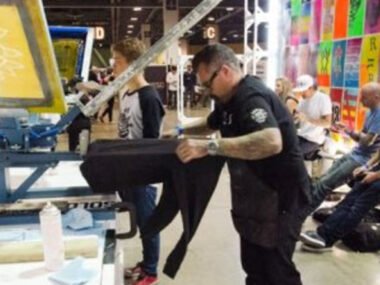No matter how experienced you are, preparing for an interview can be nerve-wracking. This is particularly true if you’re new to the job hunt journey or it’s been a while since you’ve transitioned between employers. You want to be as prepared as possible, so you’re researching the questions you might be asked, and that’s a smart step!
Still, every business’s interview process follows unique protocols. Some employers prefer the STAR method (situation, talk, action, result) to find out how you’d respond to particular circumstances on the job. Other companies are more concerned about what you’ll bring to the team and how comfortable you are with working in an inclusive environment.
If that term is unfamiliar to you, check out this article by Obsidi®, which dives into the importance of diversity hiring in today’s workplace. The more comfortable you are with this topic, the better prepared you’ll be to discuss it in your interview.
In this interview prep guide, we’ll combine basic answers you should know with STAR-style and creative thinking questions.
1. Tell me about you.
Ahh, the dreaded “sell yourself” question. While most of us struggle to balance self-assured with self-confident or low self-esteem, this question is common in nearly every interview. If it stresses you out, prepare your response ahead, starting with basic facts: where you were raised, where you live currently, and a summary of your education and experience. Once you’ve written those answers down, ask your friends and family if there’s anything you missed or if they see any ways you can make the response a little more interesting.
2. What is your ideal work environment?
While it sounds straightforward, be aware that the interviewer may be looking for a specific answer. Study the job position before your interview to find out if it’s virtual, hybrid, or in person, and what the average employee’s responsibilities are. If you’re expected to be working as a team, your answer should include something along the lines of “a collaborative environment.” But if you’re working solo, you’ll have more freedom to share what works for you best. (Keep in mind that if it’s a team job and you’re not a team player, this might not be the role for you.)
3. Tell me about how you handle high pressure environments or stressful deadlines.
Staying calm under pressure might not seem like a marketable skill to you, but employers often see this as a valuable trait. Not everyone has the ability to adjust to high-pressure situations and make decisions at the moment. If you’re good at this, it can be a strong notch in your favor.
But, on the other hand, if you know that staying calm when a big deadline is approaching is a challenge for you, it’s important to be honest upfront. Let them know that you prefer to avoid stressful situations by keeping up with smaller milestones when a large project is due and handling your stress through techniques like mindfulness or therapy. It’s okay to be stress-avoidant, and that’s a strong skill, too!
What you shouldn’t be is unaware of your stress level tolerance. Recognize what you can and can’t handle, and be clear to the interviewer about this threshold. If this position is wrong for you because it’s too high-pressure, your honesty will be appreciated.
4. This position frequently requires project-based work. Tell me about how you’ve organized yourself in the past to meet complex deadlines.
This is a common STAR question. The employer has put you in a theoretical situation in which you have a project-based deadline, and you need to tell them how you’ll work to ensure you meet all the criteria on time.
Consider what your typical productivity system looks like. How do you efficiently and thoroughly stay on task and complete your work? This is an ideal opportunity to include time management strategies you’ve studied and applied or lessons you’ve learned about how you work best.
If there is a specific project you’re proud of how you handled, use that as your example. Discuss how you stayed on track and met your deadline by allocating your time and organizing your work. Were there any positive results that happened because of your dedication to your deadline? Did you help your employer avoid negative consequences? Include these details in your summary.
5. If you could have any superpower, what would you choose and why?
Designed to see how well you think outside the box and get to know you a little better, this question has felled even some of the most brilliant interviewees. Do you answer truthfully? Will the interviewer judge you poorly if you tell them you want to be psychic so you can play the lottery and strike it rich? Is there a right or wrong answer?
Slow down and think through the question as a general idea of how well you can think creatively under pressure. While you might not get this exact question, you could get one similarly designed to dig deeper into your personality.
Use critical thinking to figure out a reply that relates to the position you’re interviewing for. As an example, if the job is in the tech field, you might want an ability where you can think faster than a computer to find bugs before a program is released.
Conclusion
Trying to predict the questions you’ll be asked in an interview is a stressful challenge that most of us fail. There’s always that one question that you’ll be unprepared for. Instead of attempting to study and create responses to every possible situation, get familiar with the types of responses the employer is looking for.
Dig deep into your skills, and become confident with how your abilities align with the company’s values and the job position. From there, the rest of the answers will flow!










